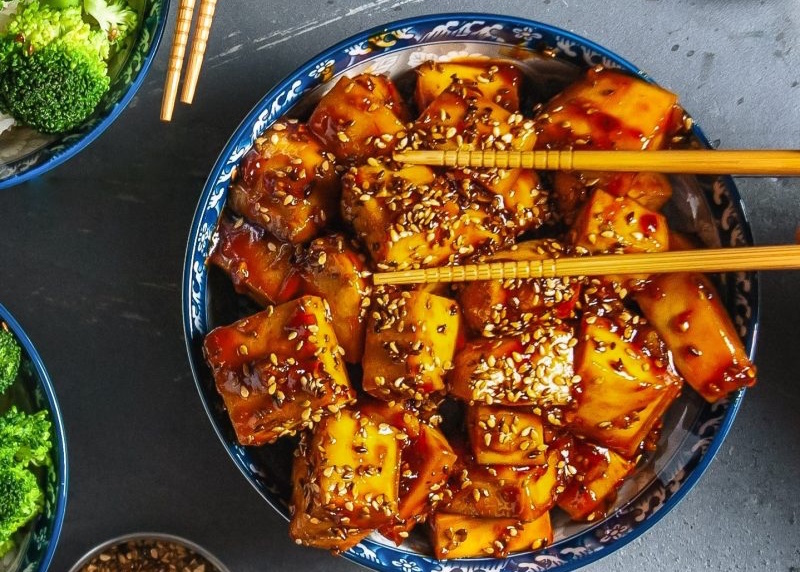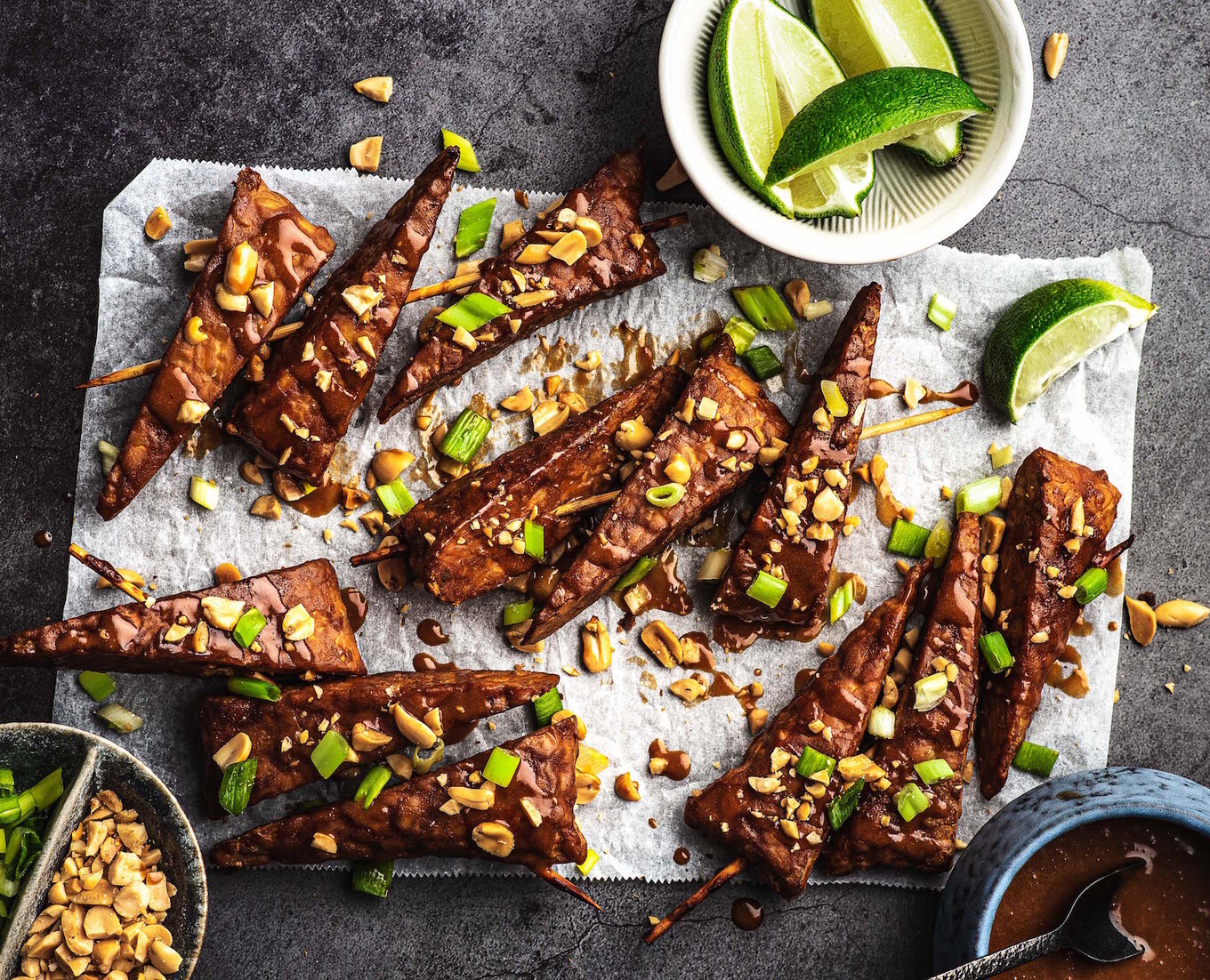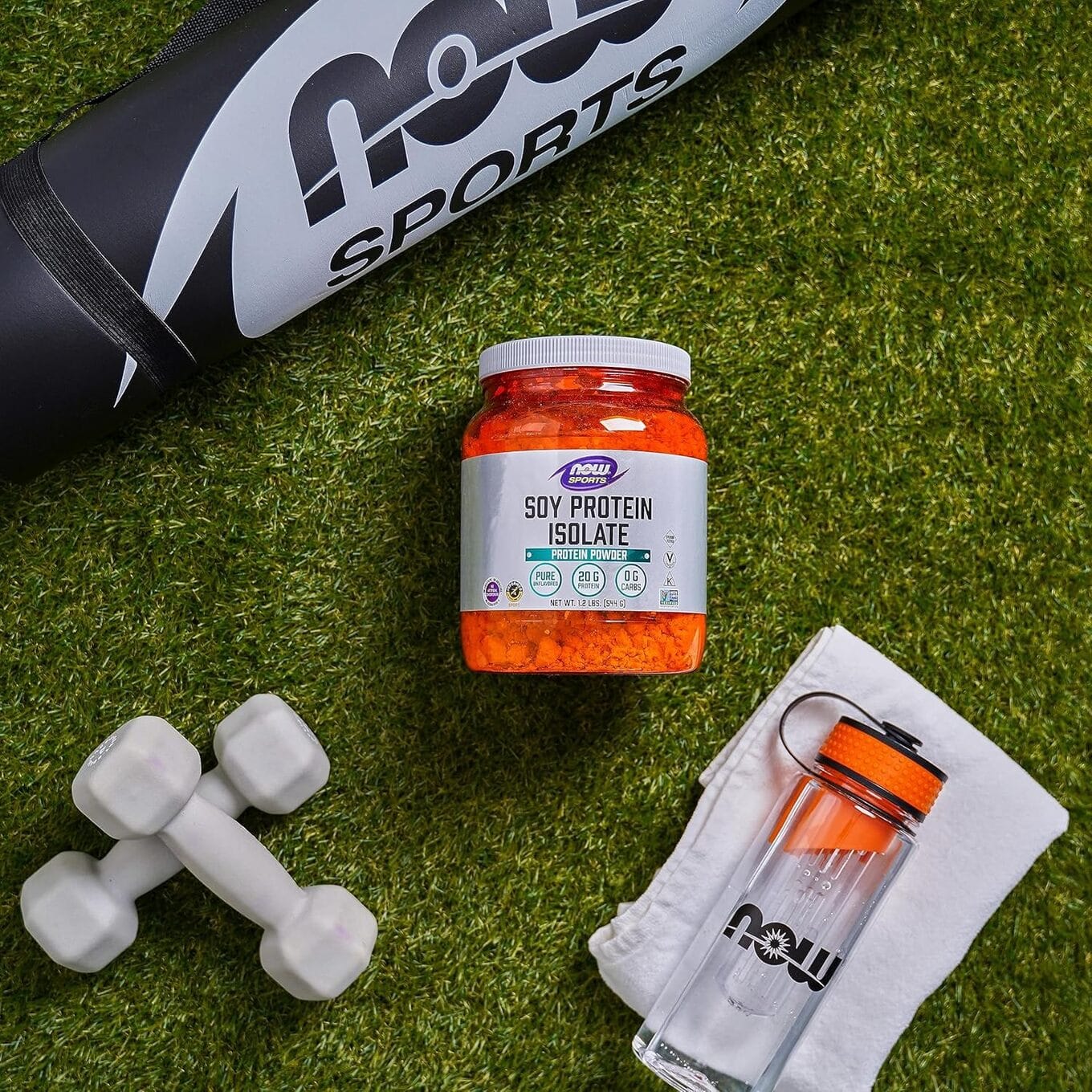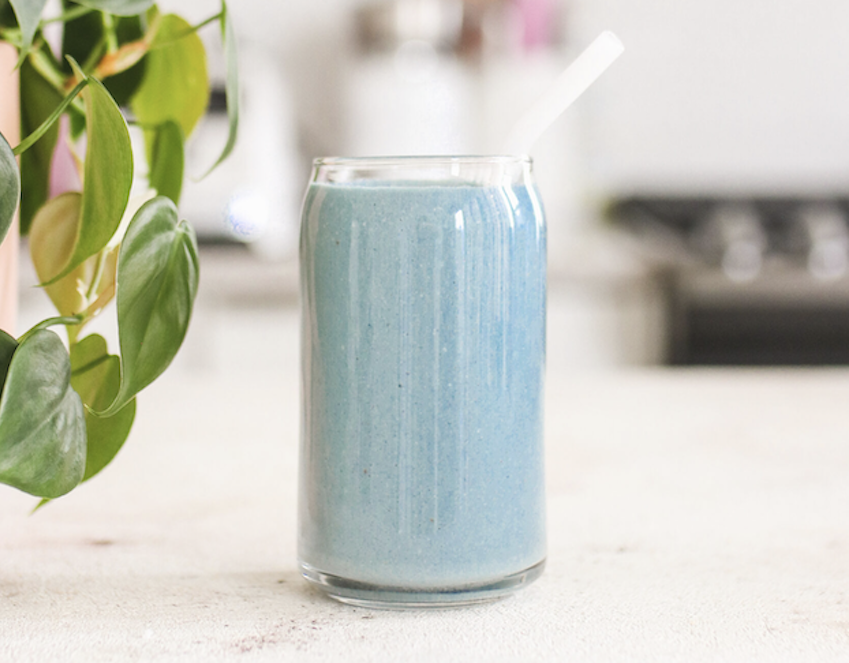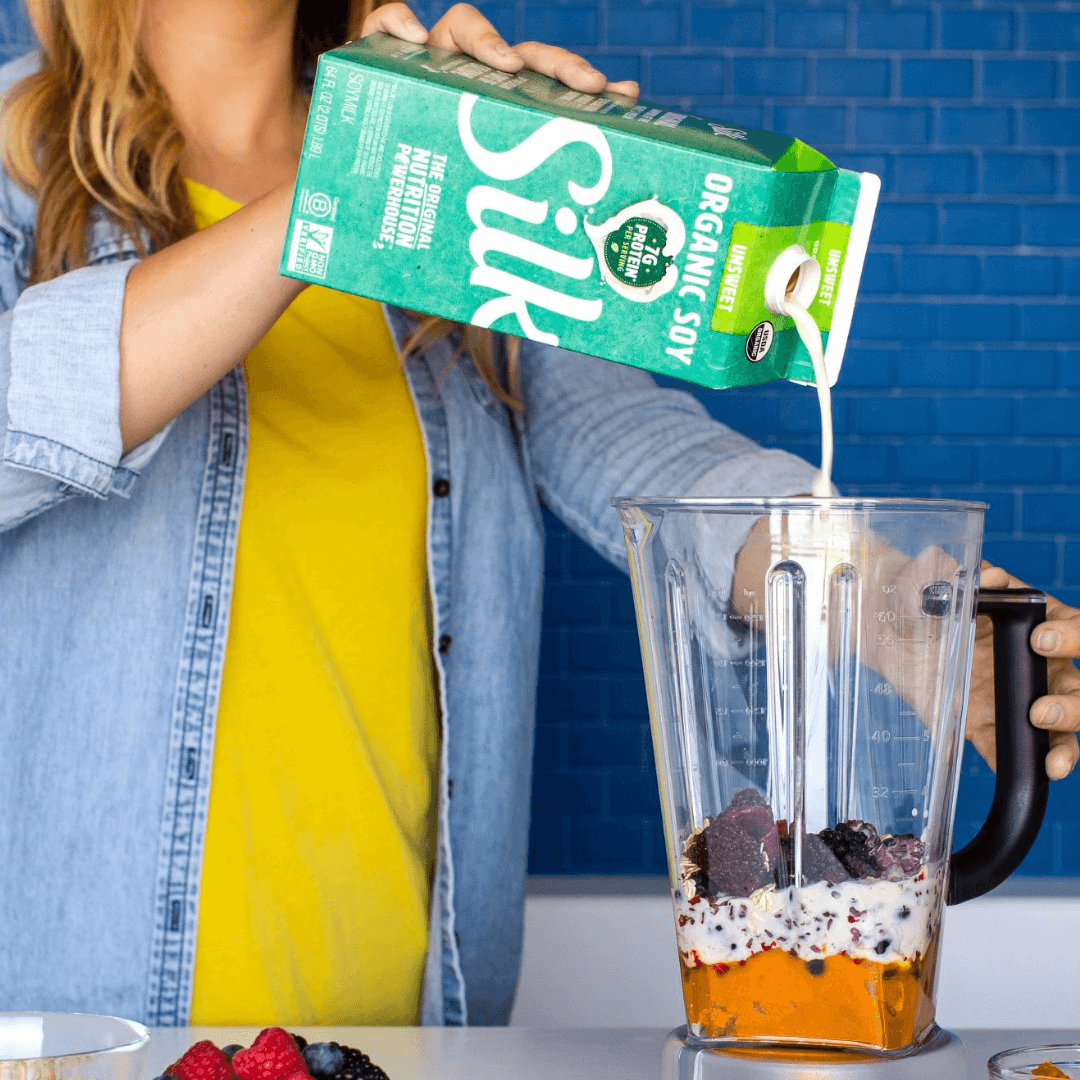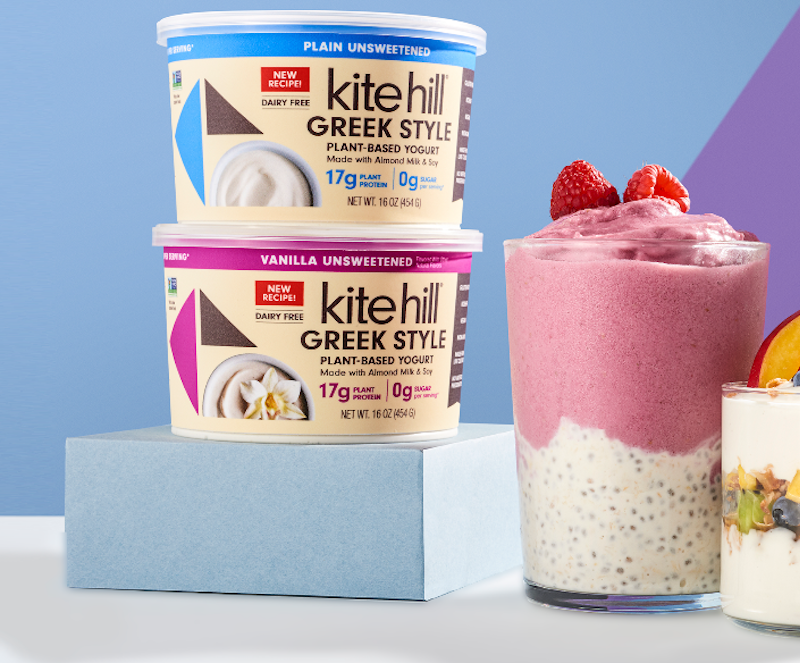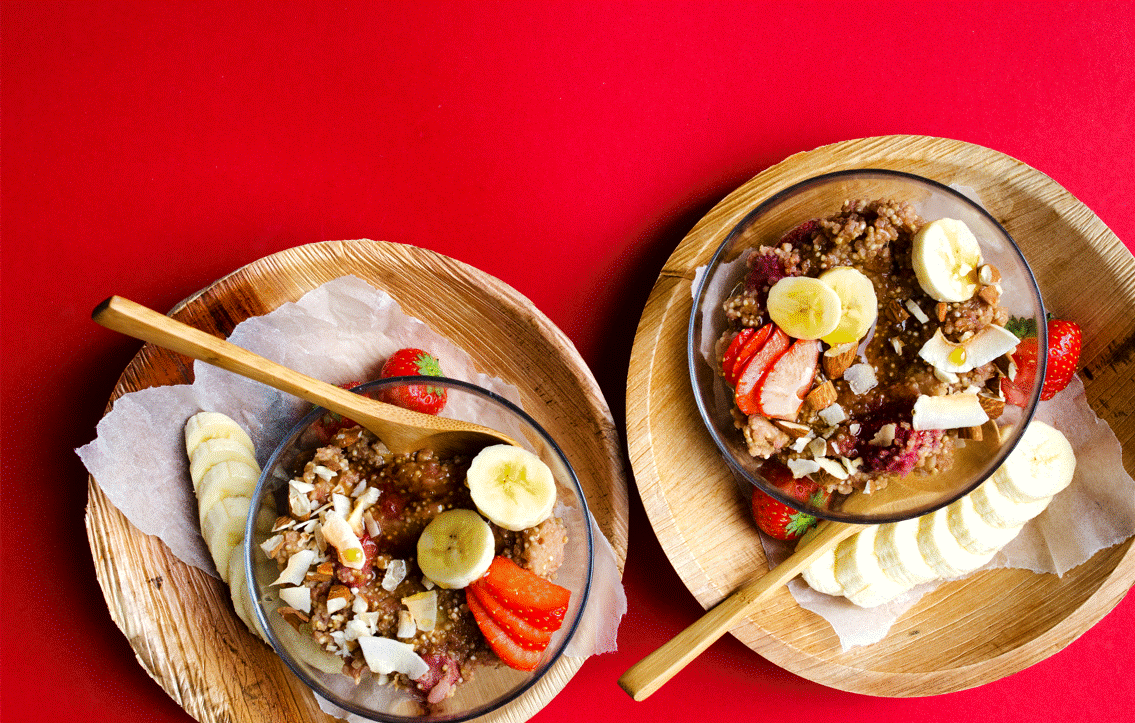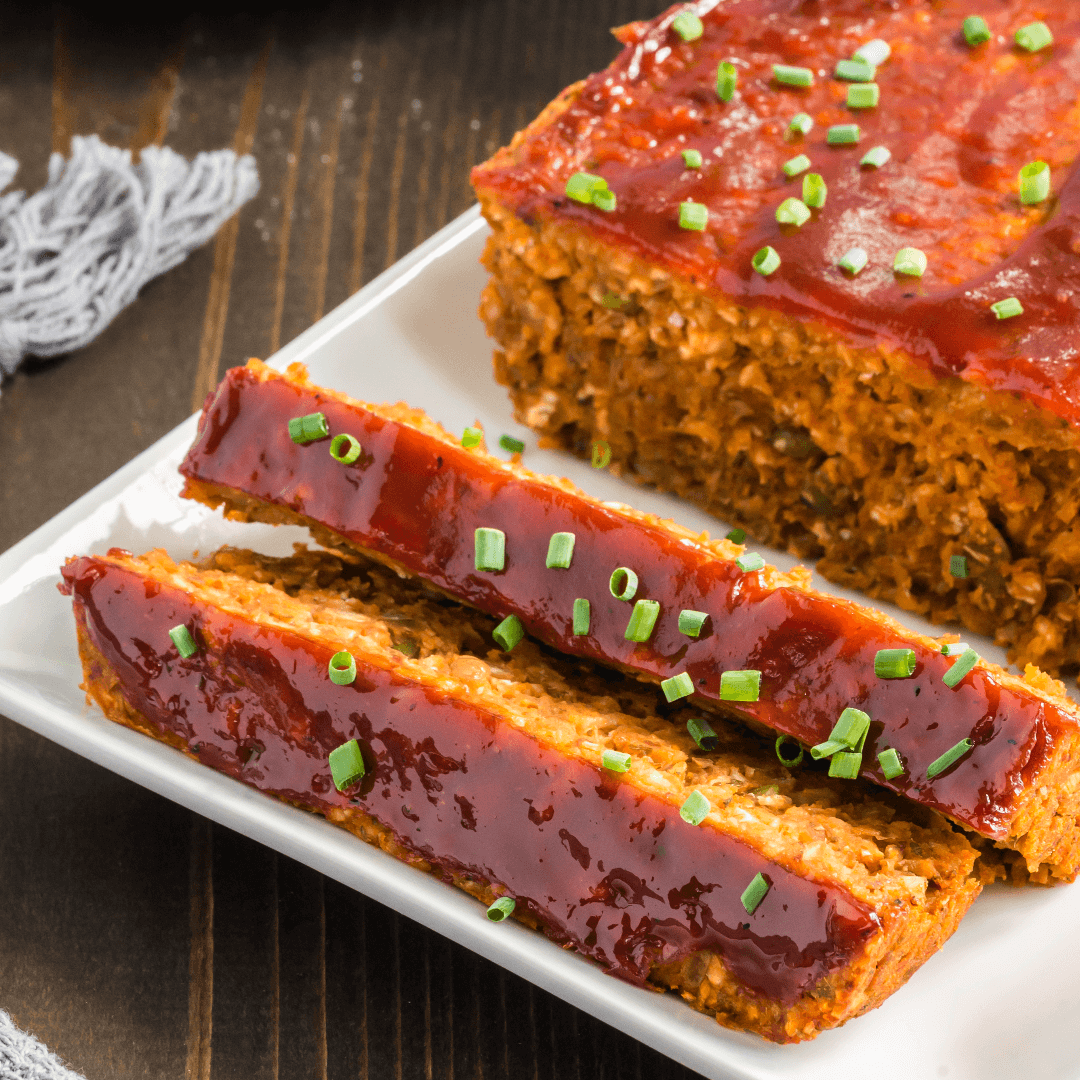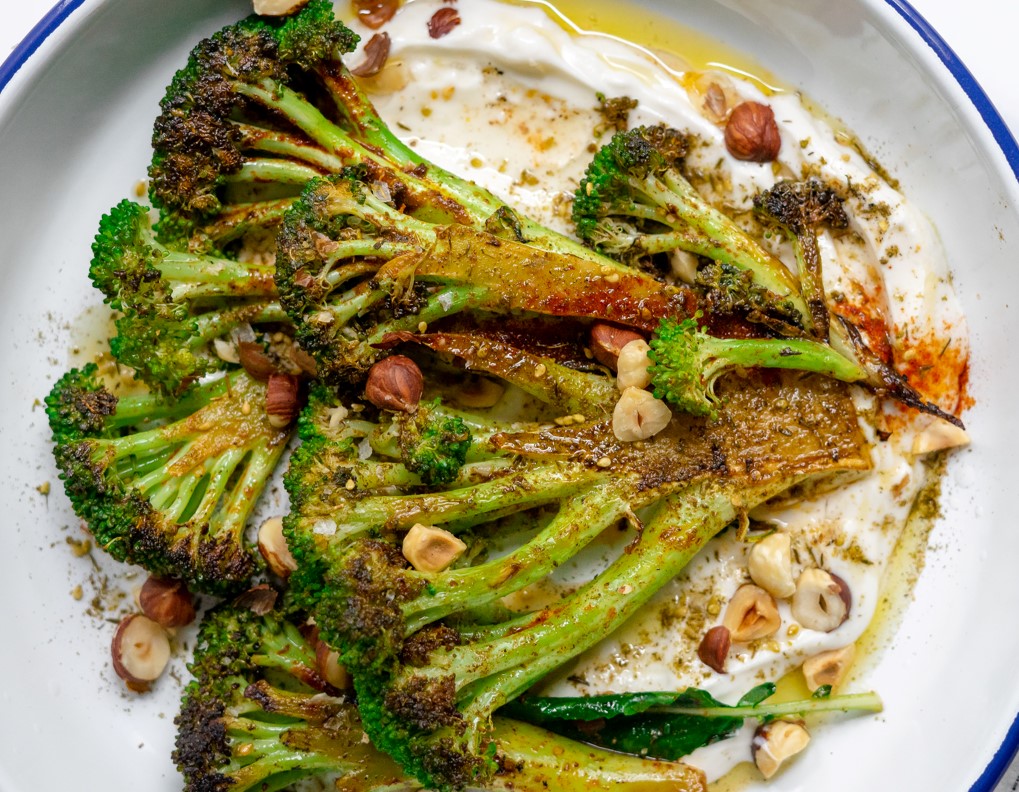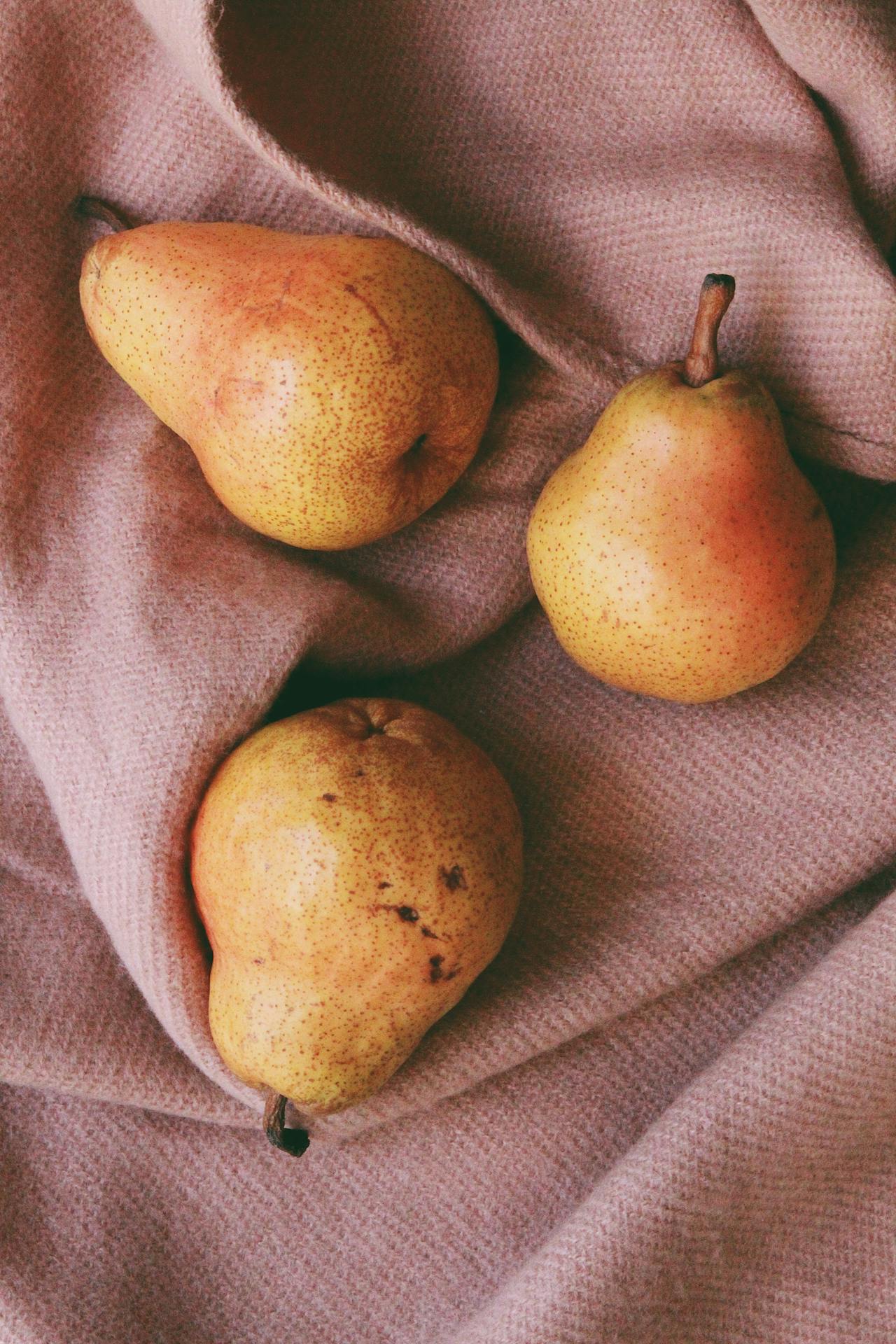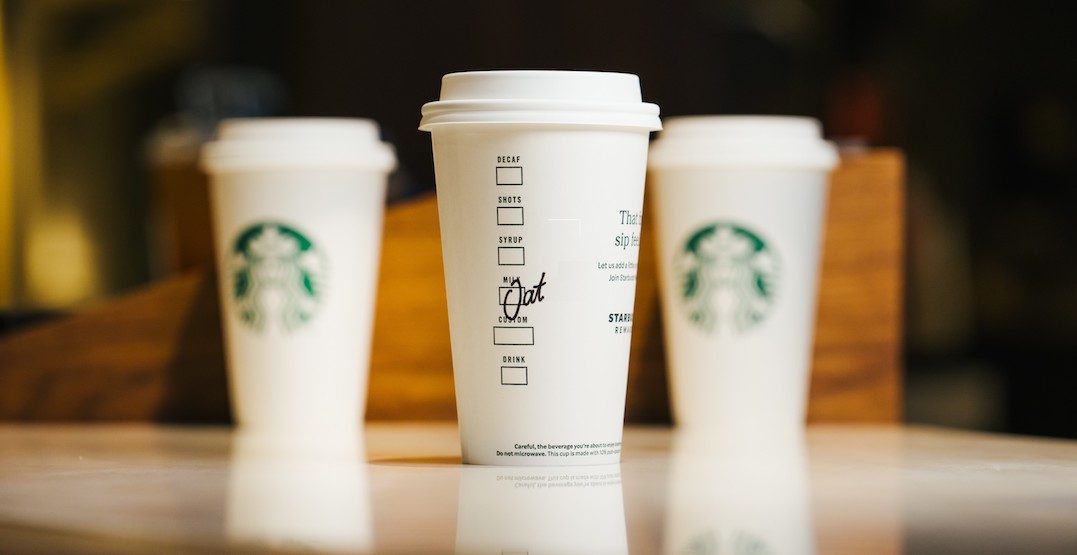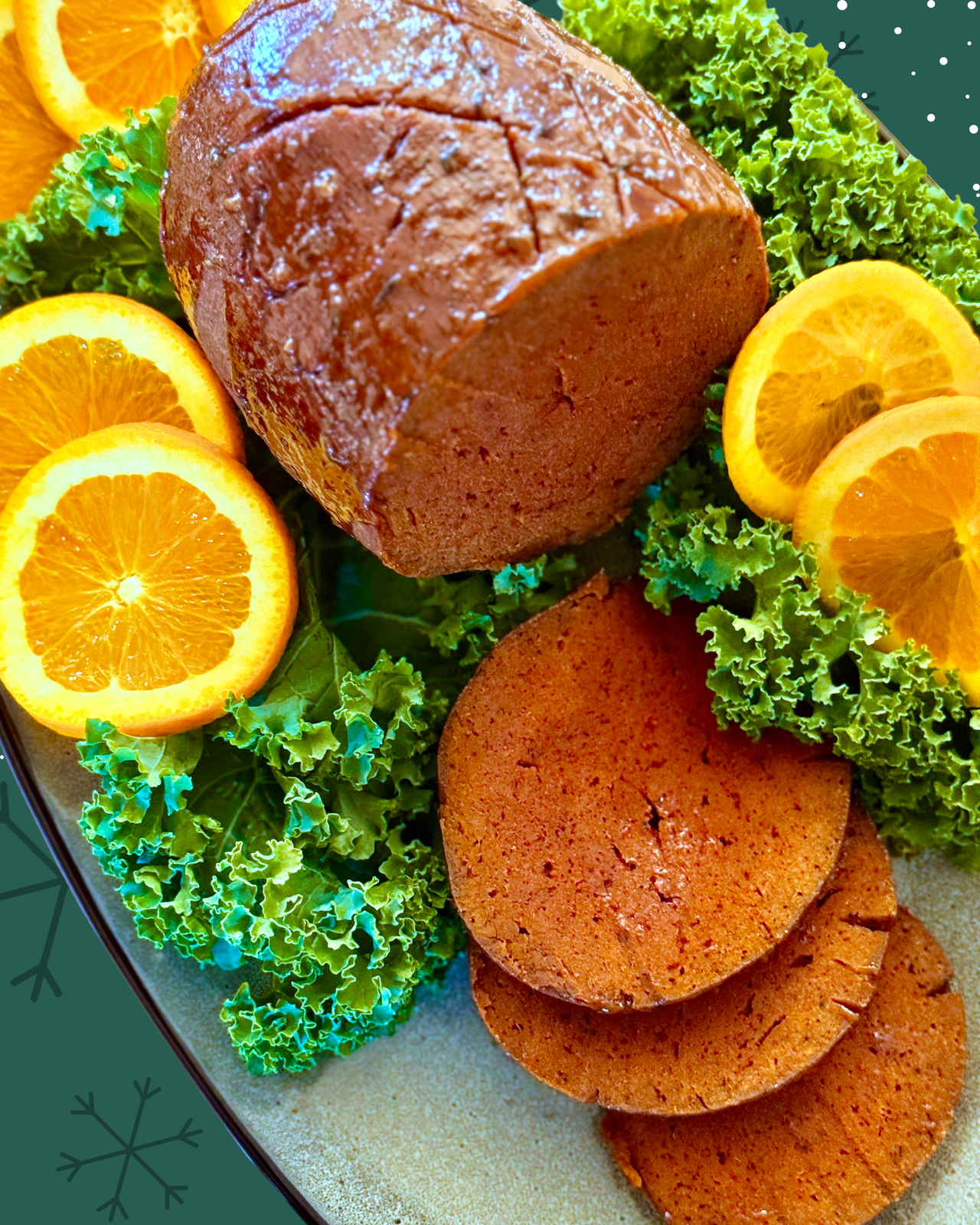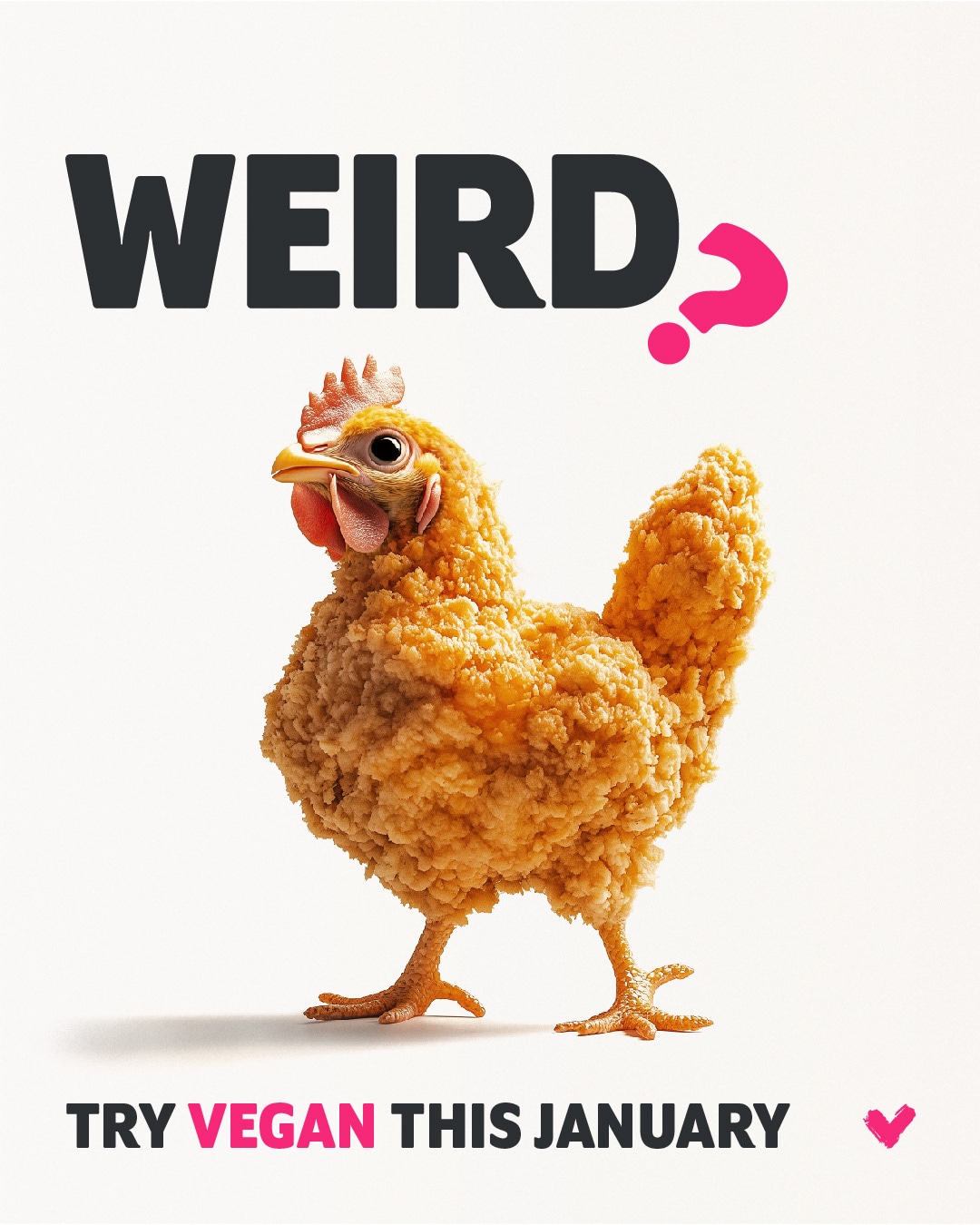As long as people keep asking about it, we’ll keep talking about protein. The subject is a seemingly never-ending black hole of conversation when it comes to vegan diets, but it really doesn’t have to be that complicated.
A vegan diet can contain a bounty of protein sources, and there’s no need to worry about developing a protein deficiency or experiencing a lack of variety in meals (check out these high-protein vegan recipes). All whole foods contain protein (we’ll repeat that later because it deserves repeating), and here are the best vegan protein sources to fulfill your daily needs and satisfy the relentless questions from omnivores about where vegans get their protein.
GabinVallet/Unsplash
Table of Contents
How much protein do you need?
Protein deficiency is typically not an issue in first-world countries. That’s not to say protein is not important, because it’s extremely essential to life and optimum health, but industrialized nations tend to put an enormous emphasis on an issue that doesn’t really affect them.
For the vast majority of people, it’s not necessary to count your protein intake, but if you’re curious, it’s fairly simple to calculate. The USDA’s Recommended Daily Allowance is 0.36 grams of protein per pound of body weight.
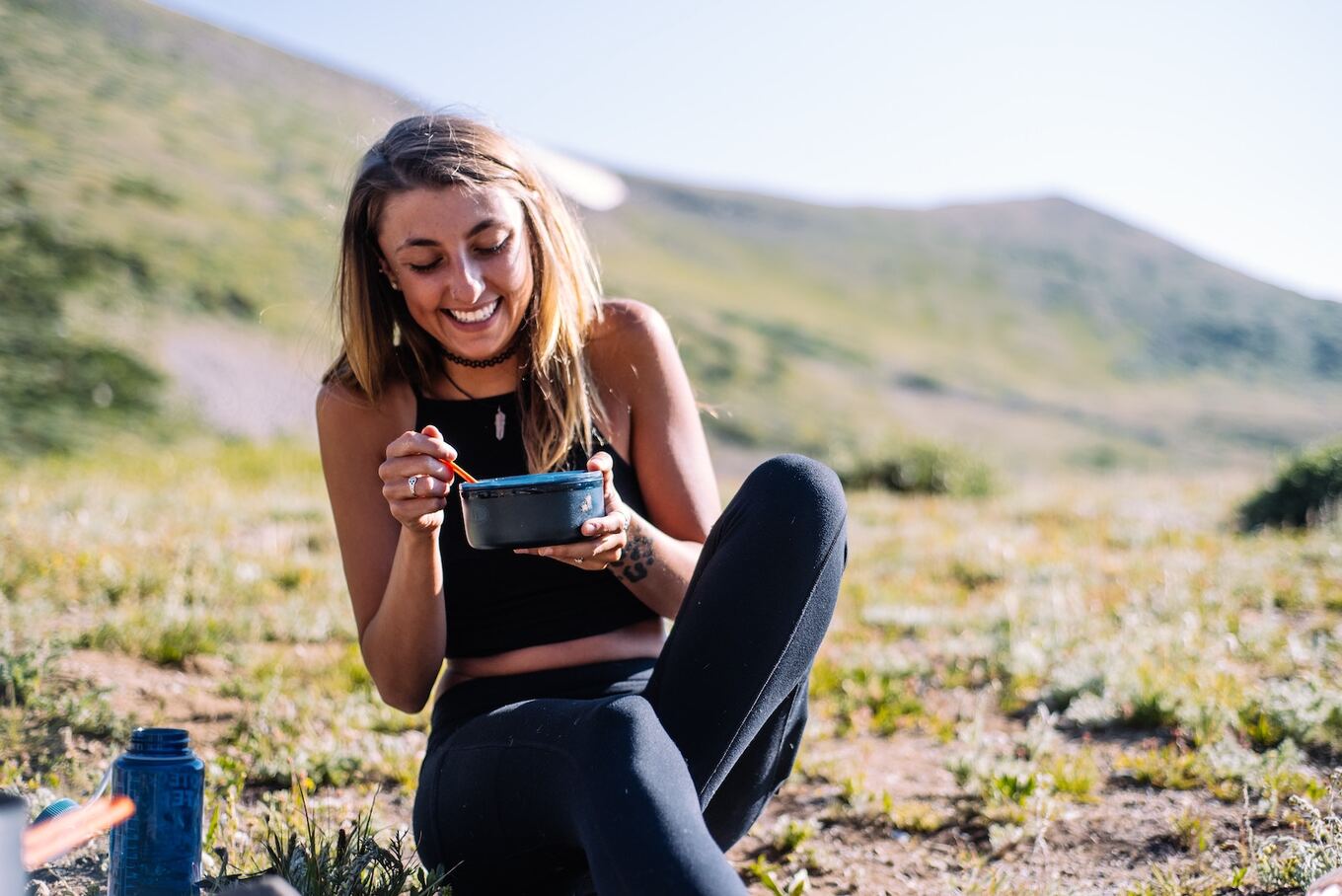 Jamie Brown/Unsplash
Jamie Brown/Unsplash
To calculate your protein needs, multiply your weight in pounds by 0.36, and the result is the number of grams of protein you need each day. For example, a 130-pound woman should aim for 46.8 grams of protein per day, and a 170-pound man should aim for 61.2 grams of protein per day. Note: this formula is designated for the “average” individual—someone who may exercise on occasion but not at high intensities or a majority of the week.
Those who are more active—who exercise at a moderate to high intensity at least four days a week—should aim for 0.7 grams of protein per pound of body weight. This is a general guideline—to truly optimize performance, a plant-based dietitian can help fine-tune your exact protein needs based on your activity level.
Are plant proteins complete proteins?
Complete versus incomplete protein isn’t discussed much in the vegan community other than to respond to omnivores in their attempt to make plant-based proteins seem inferior to animal-based proteins.
Most people—omnivore or otherwise—don’t pay attention to how much complete versus incomplete protein they consume on the daily, but as soon as someone goes vegan, it becomes a major concern on the outside looking in. Esteemed physicians—including Neal Barnard, Colin Campbell, and Michael Greger—have stressed the fact that as long as one eats enough calories and varies their diet, they will meet their protein needs regardless of whether they consume complete or incomplete protein.
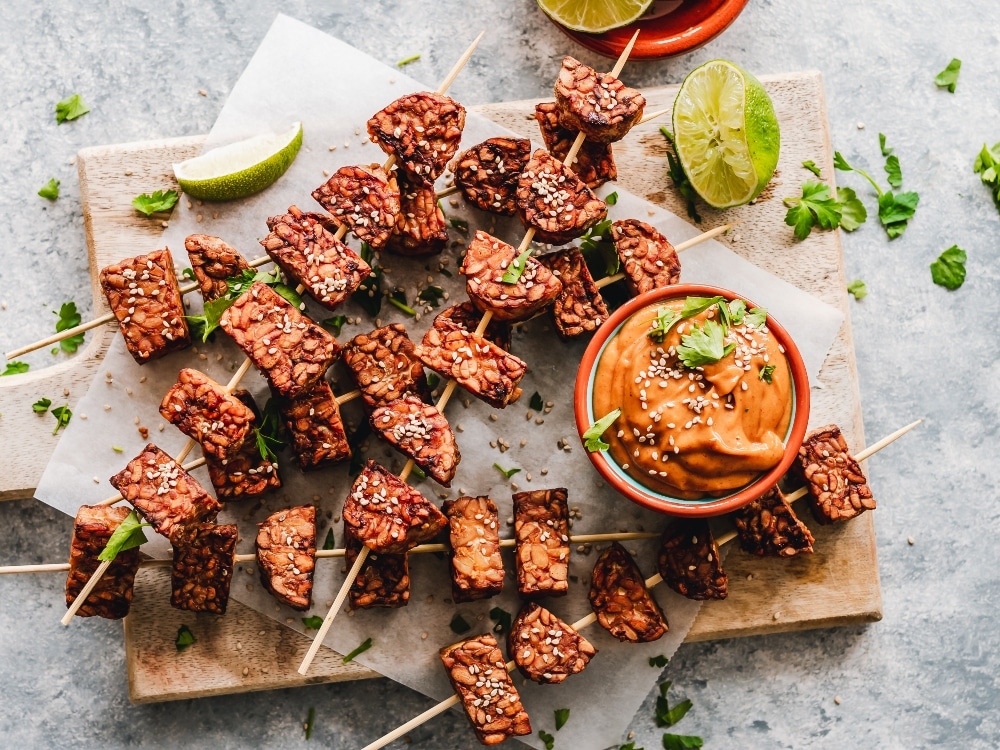 Unsplash
Unsplash
If you’re suddenly wondering if the foods you enjoy are complete or incomplete, here’s what you need to know. Protein is made of 20 different building blocks known as amino acids. The human body can make 11 of these amino acids on its own, but the other nine must be obtained from food sources. These nine building blocks are called essential amino acids.
Not all foods contain all nine amino acids. These are called incomplete proteins. The foods that contain all nine essential amino acids are called complete proteins. Except for foods such as soy, hemp, quinoa, chia seeds, pea protein, and buckwheat, most plant-based foods lack a few essential amino acids. That’s not to say they’re inferior sources of protein, because people eat a variety of foods, and incomplete protein sources naturally complete each other. Think rice and beans, hummus and pita bread, peanut butter sandwiches … the list is endless. Eat a varied diet, eat enough calories to sustain your body, and you don’t have to worry about complete versus incomplete protein.
The best vegan protein sources
Every single whole food contains protein, but some pack in significantly more than others. This list isn’t comprehensive—you’d need a textbook to list them all—but here is a list of some of the best high-protein vegan foods.
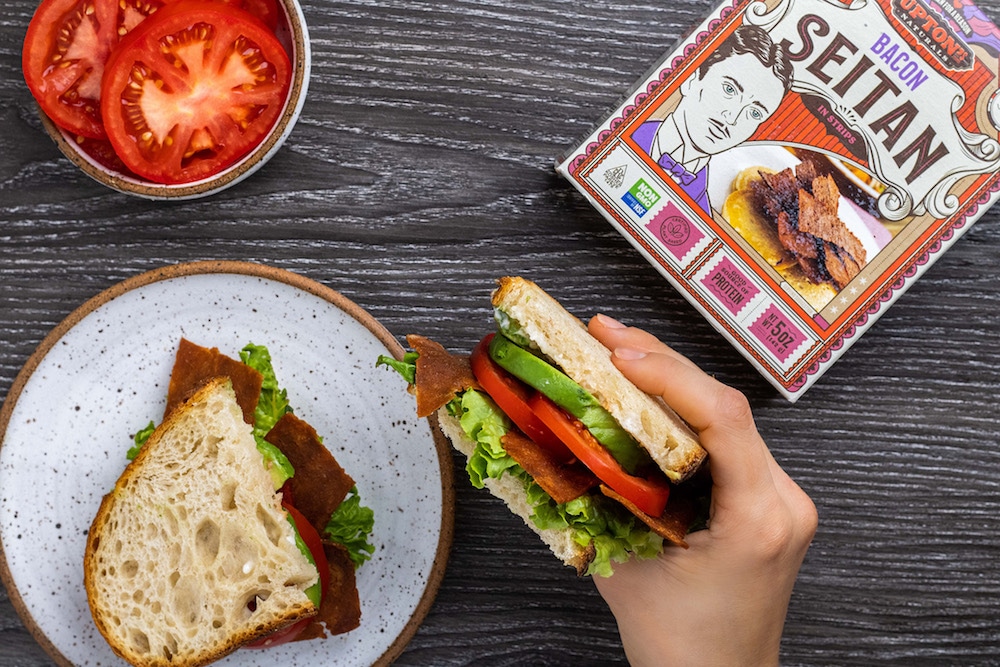 Upton’s Naturals
Upton’s Naturals
1 Seitan
This meaty vegan staple is mostly made from vital wheat gluten which is extremely high in protein. There’s a whopping 18 grams of protein in a mere two-ounce serving of seitan. Many vegan meats rely on seitan for their chewy texture, but you can also purchase it in its original form and season to your tastes (try Upton’s Naturals). Those who enjoy DIY can make their own seitan fairly easily—this recipe is great place to start.
Try it in a recipe: Candle 79’s Famous Seitan Piccata
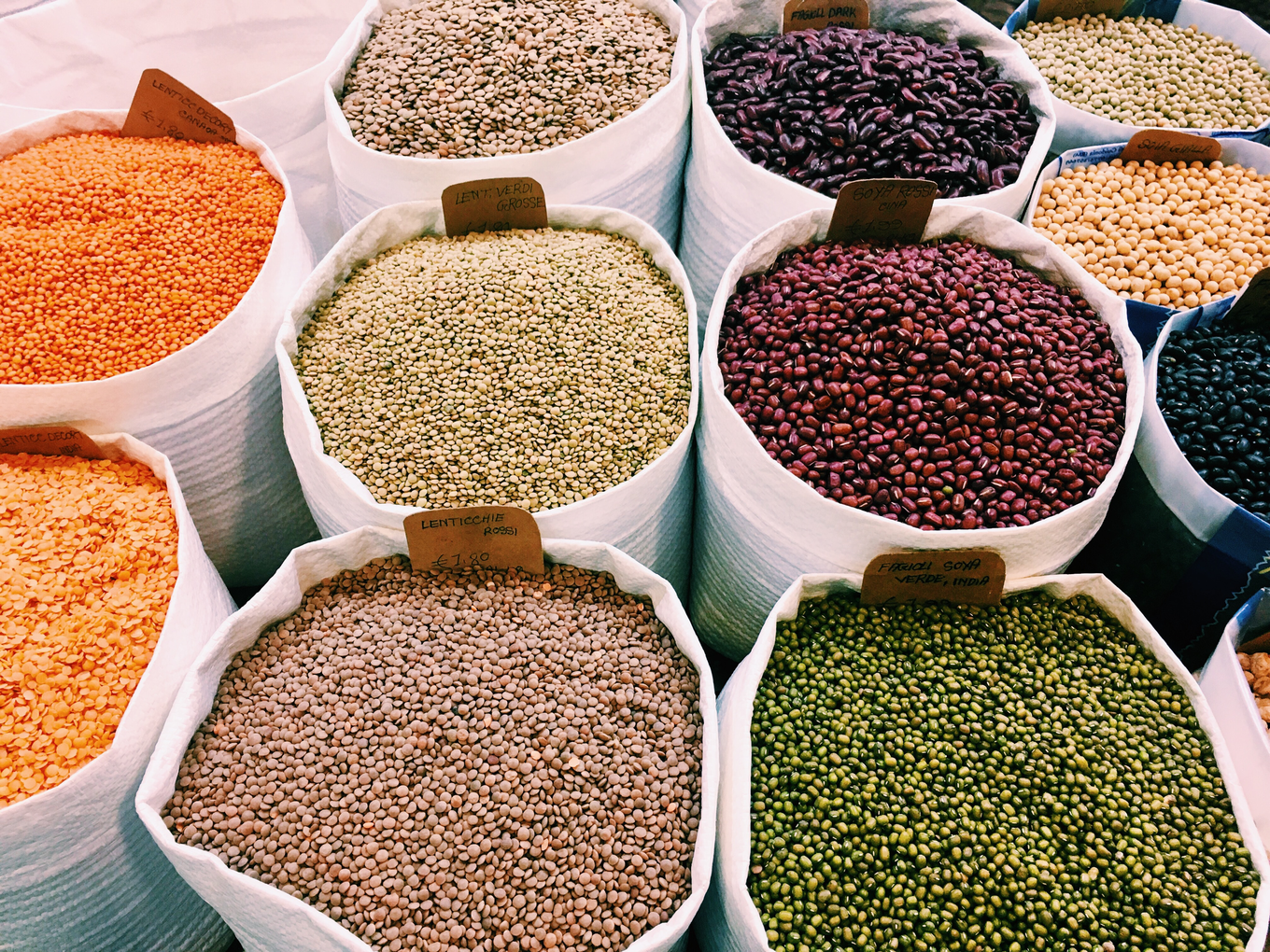 BettySubrizi/Unsplash
BettySubrizi/Unsplash
2 Beans
Beans are not a singular food—they’re a category. While many are content with sticking to just a few varieties, there are dozens of kinds of beans that all have a unique taste and texture—not to mention a significant amount of protein. Lima, fava, black, pinto, chickpea, kidney, and cannellini beans all contain between 12 to 15 grams of protein per cup, cooked. While not called a bean, black-eyed peas are also high in protein, weighing in at 13 grams per cup.
Try it in a recipe: Vegan Indian Three Bean Dal Soup
3 Tofu
The protein content of tofu fluctuates slightly, as it depends on the type of tofu you buy. The firmer the tofu, the more protein, as firm tofu is more concentrated than the softer options. For example, a three-ounce serving of extra-firm tofu contains nine grams of protein, while silken tofu hovers around four grams. Many brands (like Wildwood) also offer a high protein variety, and those contain upwards of 14 grams of protein.
Try it in a recipe: Vegan Sticky Orange Sesame Tofu
4 Tempeh
Finish your tempeh bacon—it’s high in protein. Also made from soy, tempeh naturally contains a substantial amount of protein—a three-ounce serving contains 18 grams! This crumbly, meaty vegan protein source is an excellent base for a good marinade.
Try it in a recipe: Vegan Smoky Tempeh Peanut Satay
5 Protein powder
While not a whole food, there’s no denying that plant-based protein powder will help you reach your daily quota. Most vegan protein powders contain between 15 to 20 grams of protein. If you’re looking for a product with complete protein, opt for soy or pea protein-based brands such as Now Sports or Anthony’s.
Try it in a recipe: Chocolate S’mores Protein Smoothie
6 Spirulina
This powdered algae does more than turn smoothie bowls into a pretty blue—it’s a super concentrated protein source. Just one tablespoon packs in four to six grams of protein (the green variety is lower on the scale, whereas blue spirulina contains slightly more protein). The next time you’re at a smoothie bar, opt for the menu item with spirulina (or Blue Majik, as some call it) for an extra dose of protein.
Try it in a recipe: Vegan Herbed Mermaid Orecchiette
7 Plant-based milk
The latest US Dietary Guidelines—revised in late 2020—now state that fortified soy milk is nutritionally equivalent to cow’s milk. This is huge, as it completely undermines one of the dairy industry’s strongest arguments for drinking milk. Cow’s milk has eight grams of protein, it’s true, but so does soy milk. Pea milk also contains eight grams of protein, and some brands (like Califia Farms and Silk) are fortifying their plant-based milks with even more protein—up to 10 grams per eight-ounce serving. Check out this guide to find the right high-protein vegan milk for you, or alternatively, make your own plant milk.
Try it in a recipe: Homemade Hemp Milk
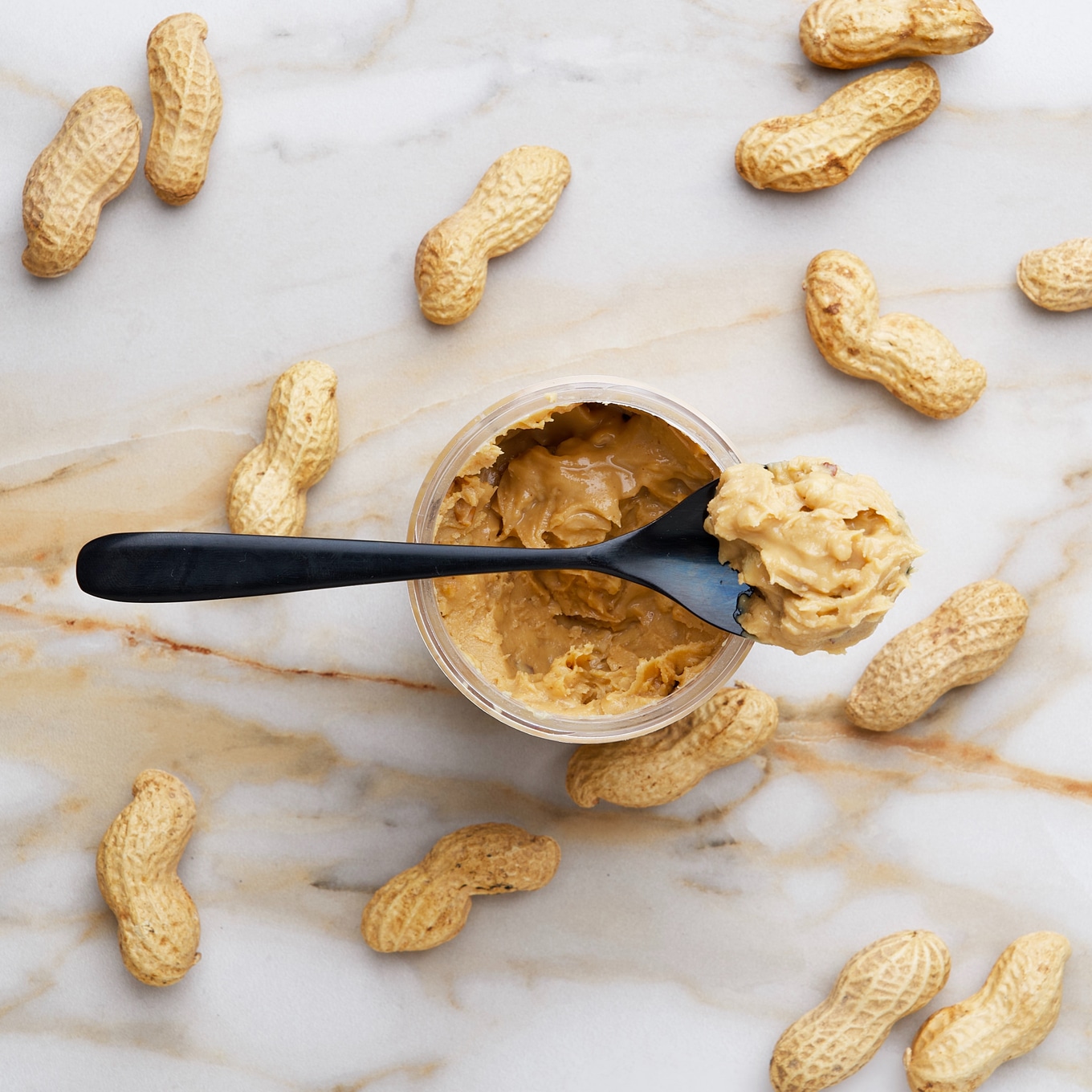 Unsplash
Unsplash
8 Nuts, seeds, and butters
Like beans, the nuts and seeds category is huge. When looking for the seeds with the most protein, lean toward a 30-gram serving of hemp seeds (12 grams), chia seeds (seven grams), and flax seeds (nine grams). High-protein nuts include peanuts (seven grams), almonds (six grams), and brazil nuts, cashews, walnuts, pine nuts, hazelnuts, and pistachios (all four grams) per 1-ounce serving. Nut and seed butters have similar protein profiles.
Try it in a recipe: Vegan Chocolate-Dipped Peanut Butter Coconut Oat Bites
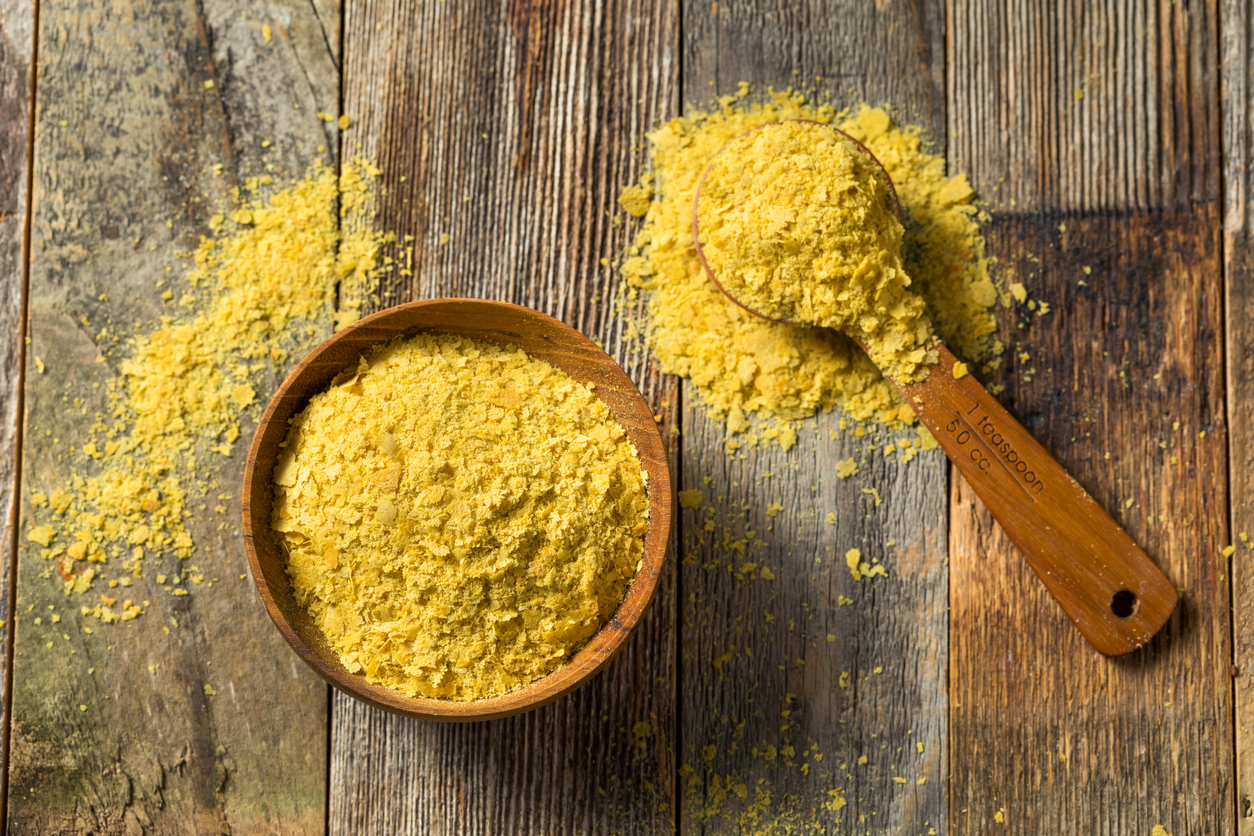 Getty Images
Getty Images
9 Nutritional yeast
Fondly referred to as “nooch” in vegan circles, these yellow flakes are packed with nutrients. Two tablespoons of this cheesy-tasting condiment amount to five grams of protein. Not sure what to do with a canister of nooch? Check out 16 Ways to Use Nutritional Yeast.
Try it in a recipe: Vegan Cheesy Cauliflower Potato Casserole
10 Non-dairy yogurt
Like plant milk, dairy-free yogurt can contain a good amount of protein, depending on the brand. For the largest protein dose, seek out products such as Kite Hill Greek Style Plant-Based Yogurt, which contains 15 to 17 grams of protein).
Try it in a recipe: Vegan Fruity Frozen Yogurt Bark
11 Quinoa
If you’re looking to up your protein intake, swap out rice for quinoa. This sturdy grain contains eight grams of protein per one cup, cooked. Quinoa also makes for a terrific, satiating porridge.
Try it in a recipe: Strawberries and Cream Quinoa Breakfast Porridge.
12 Lentils
No matter the color—green, brown, yellow, or red—lentils are protein powerhouses. A quarter cup serving (dry), will provide 10 to 12 grams of protein, depending on the variety. Not sure how to prepare them?
Try it in a recipe: Savory Vegan Lentil and Sweet Potato Meatloaf
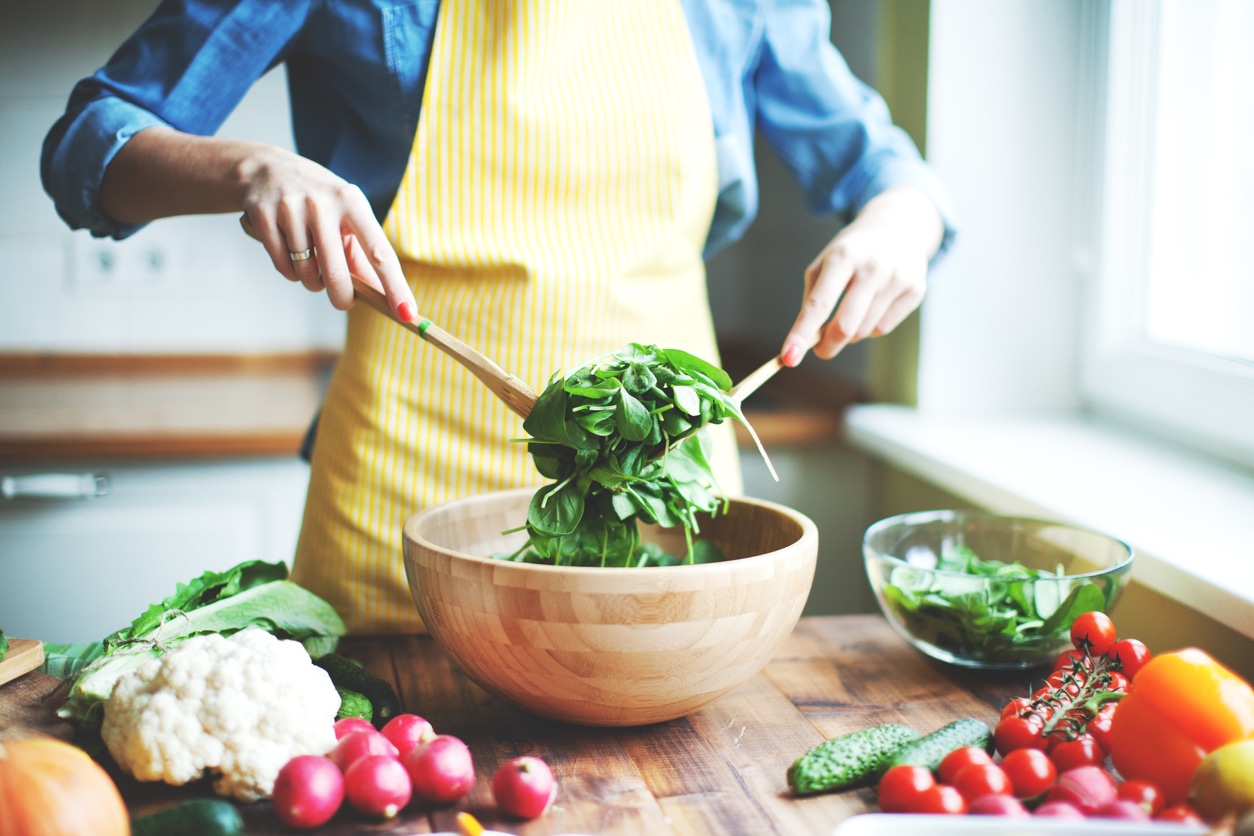 Getty
Getty
13Spinach
The cartoon may have exaggerated the protein powers of spinach slightly, but there was some truth to Popeye the Sailor Man’s spinach-chugging philosophy. The leafy green provides just over five grams of protein per one cup, cooked. Go ahead and be liberal with it. We love adding it to smoothies, soups, pizzas, pastas, and big bowls of salad.
Try it in a recipe: Zesty Vegan Spinach Salad With Blackened Chickpeas
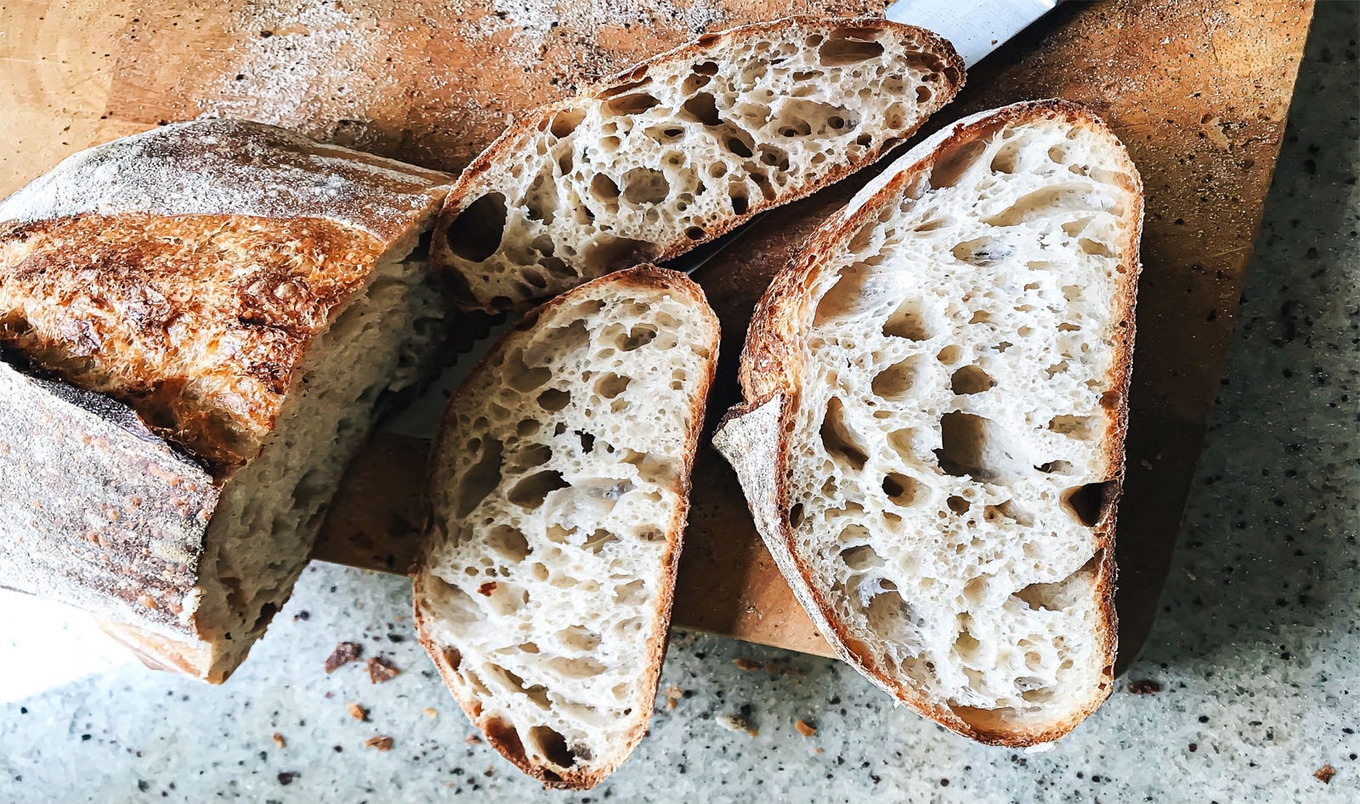 Geraud Pfeiffer/Pexels
Geraud Pfeiffer/Pexels
14 Bread
Excluding the white varieties (sorry, sourdough enthusiasts), bread can top off your daily protein quota. Varieties such as whole wheat and Ezekiel bread contain four and eight grams of protein per slice, respectively. Don’t fear bread, just choose the higher protein options.
Try it in a recipe: Homemade Vegan Hearty Seed Bread
15 Vegetables
Spinach isn’t the only veggie with a decent amount of protein. Greens such as broccoli, Brussels sprouts, and asparagus all hover around four grams of protein per cup; collard greens contain five grams of protein per cup; and a large potato comes in at just under eight grams of protein. There’s more than one reason to eat your vegetables!
Try it in a recipe: Vegan Za’atar-Seared Broccoli Steaks
For more on healthy vegan eating, read:
Here at VegNews, we live and breathe the plant-based lifestyle, and only recommend products we feel make our lives amazing. Occasionally, articles may include shopping links where we might earn a small commission, but in no way does this effect the editorial integrity of VegNews.

